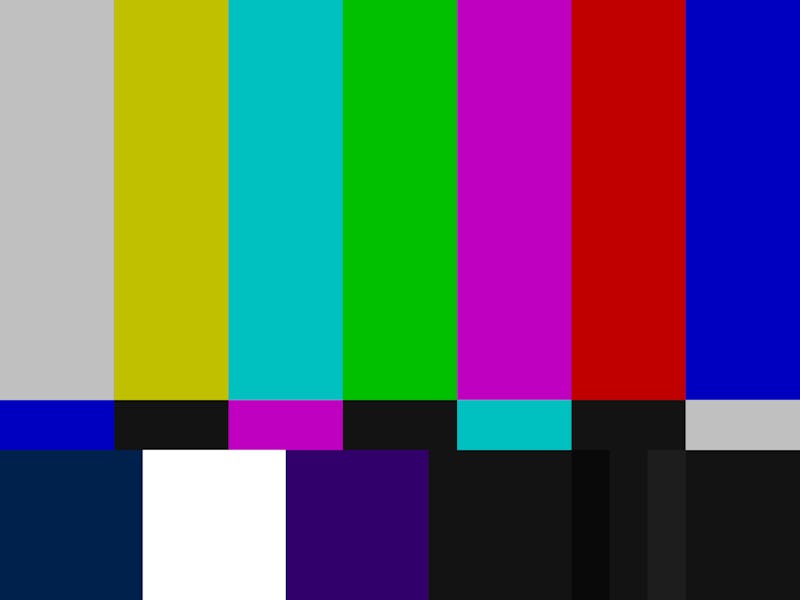Does Anyone Care You Don't Own a TV?
One of the standby benchmarks of snooty hipsterdom is edging toward the mainstream.

To paraphrase Jeff Foxworthy: if you have a non-working TV acting as a TV stand for a working TV, you might be a redneck.
And if you have a television that only gets — pfft — cable, well, you might want to get a Wi-Fi hookup. Last December, Time published a Nielsen study and showed that in 2014, hours per month spent watching TV fell for the average American, while time spent watching content through mobile devices, broadband or “smart” TV services like Apple TV, YouTube and Roku, increased.
And that number continues to rise. In a study published this year, Google partnered with Nielsen to track viewer habits, and discovered that traditional-TV-watching time had fallen by another 10 percent, while viewership on YouTube shot up 44 percent. “YouTube overall, and even YouTube on mobile alone, reached more 18-34 and 18-49 year-olds in the U.S. than any cable network in December 2014,” the study concluded.
But when did it get so casually mainstream to eschew TV? It was all of 15 years ago that the Onion [skewered]((http://www.theonion.com/article/area-man-constantly-mentioning-he-doesnt-own-a-tel-429) a proud non-TV-owning local man as a Proust-reading, journal-scribbling snob who couldn’t help but mention, to everyone in town, that he doesn’t own an “idiot box.” Only in 2011 did the rate of TV ownership in the United States fall for the first time in a generation — from 99 percent of the population to 97 percent, in part because the switch to digital broadcasting was too expensive for some people to keep up with. By 2013, the number of TV-less households in the United States had reached 5 million, up from 2 million in 2007.
To put those figures in perspective, some 1.6 million Americans don’t have indoor plumbing. TVs traditionally have been almost as much a fixture in our homes as toilets. So why have we started to see more people phase them out?
In part, perhaps, is the ease with which you can catch the Big Game on a TV at a bar or a restaurant. (And I think I saw one the other day at the dentist’s office.) Whether anyone is watching these TVs is another story. Indeed, go through your day counting the number of televisions in public, at restaurants, etc., to which no one is paying attention, and you’ll see data come to life — because people are more likely looking at their phones, watching things over which they have much more control. It isn’t enough to change the channel. We need search, favorites, and, preferably, the ability to block or skip ads.
And now that ad blocking features are being better integrated into the smartphone experience — despite pushback — the gap between those who can stomach conventional television programming and those who’ve figured out how to hack and bypass the system is destined to widen.
Resistance to advertising may not be as well-equipped or well-monied as the ad establishment. But it will always enjoy more popular support, particularly as access to options like pause, search, and skip invades television via so-called “smart” TV services like Apple and Roku that allow the user to control the next program.
It mirrors the way transportation services like Uber and Lyft have allowed riders greater control over, in effect, a cab ride. We can see our driver’s geolocation on our smartphones, and when the ride is over, we can review the experience. Most of all, we can trust those ratings as being democratically generated.
Technology has created content-viewing expectations that we can’t walk back. Indeed, watching traditional television these days is like taking a taxi. Why can’t we see where content is coming from? Where’s our ability to rate the experience?
Even among people who watch TV, it’s common practice to hack the experience by pausing the television for long stretches to do other things and build cached time that allows the viewer to skip over commercials.
So the better question might be, who cares that you do own a TV? Answering that might be more instructive, since it’s probably either an advertiser who wants to invade your brain, or — to put it bluntly — some redneck who doesn’t know any better.
So turn off your TV, boot up your computer, and get that free trial month of HBO you’ve been waiting to cash. There are whole seasons of Veep on there.